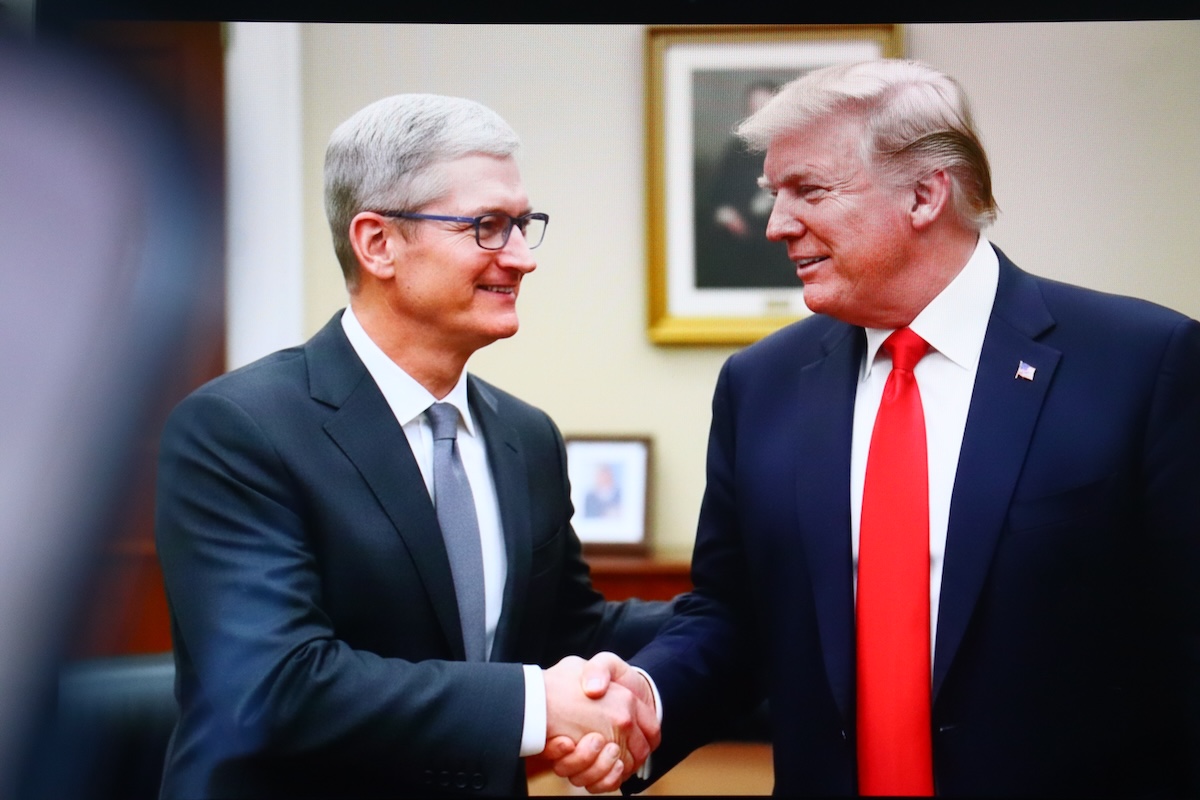
When Elon Musk poured $288 million of his own money into Donald Trump’s 2024 campaign — and later joined the administration to lead its DOGE initiative — many saw it as more than just political passion or personal ambition.
It was seen instead as also being a strategic move that could financially benefit his companies through his ties to the White House.
But what Musk also did was provide a blueprint for other tech companies, showing how they could further their business objectives by helping President Trump meet his political objectives.
As President Trump blurs the lines between government and the free markets in pursuit of his political agenda both at home and abroad, the tech industry has proven to be the sector most aggressive in aligning itself with the president’s ambitions.
This is not surprising given the massive amount of money at stake with the AI boom – and also because of the many questions that have been raised about the economic disruption that AI could unleash on the livelihoods of American workers.
And while a number of tech companies have made efforts to appease Trump, it's Apple (AAPL) CEO Tim Cook who appears to most closely follow Musk’s blueprint.
It began when Apple pledged to invest $600 billion in US manufacturing last month during a ceremony in which Cook thanked Trump “for putting American innovation and American jobs front and center” – and presented the president with a 24-karat gold plaque.
Last week, Cook made sure to stay on the president’s good side when he insisted to CNBC that the higher prices for Apple’s newly released iPhone 17 had nothing to do with Trump’s tariffs.
And there are now reports that Apple might be the latest tech company to take a stake in Intel (INTC), following a $5 billion investment by Nvidia (NVDA) and $2 billion from SoftBank Group.
Which, of course, follows the 10% stake taken by the Trump administration.
An investment in Intel would almost certainly provide no strategic advantage for Apple, which now builds its own in-house processors and uses chips from Intel rival Taiwan Semiconductor Manufacturing Company (TSM) in its iPhones.
But it’s an investment that would likely win the approval of the White House, which has made Intel’s turnaround a priority.
Apple follows Trump’s lead in blasting EU
Questions are starting to be raised on Wall Street about what these investments in Intel are really seeking to achieve, as Andrew Ross Sorkin noted in his DealBook newsletter.
“Are companies willing to invest in Intel because they’ve bought into the vision of the chipmaker’s C.E.O., Lip-Bu Tan — or is it because they’re seeking favor with the Trump administration?” Sorkin wrote.
And the questions around Apple’s ties to the Trump administration actually started coming earlier this year, when Democratic Senator Elizabeth Warren sent a letter to Cook in April after Trump backtracked on China tariffs that would have increased manufacturing costs on the iPhone.
The exemptions granted Apple “raise fresh concerns about influence-peddling by huge well-connected corporations, and their ability to gain special favors from President Trump,” Warren wrote in her letter.
It’s impossible to guess what Cook’s end game might be, but on Wednesday Apple did something that Trump has also been known to do: The company lashed out at the European Union (EU).
In a blog post, Apple slammed the EU’s Digital Markets Act, calling on it to repeal the law that established rules about how Big Tech can operate in its 27-nation bloc.
Apple said that “it’s become clear that the DMA is leading to a worse experience for Apple users in the EU,” claiming that the law is “exposing them to new risks, and disrupting the simple, seamless way their Apple products work together.”
The company said that users in the EU are facing delays on features due to the DMA – including the AI-powered language translation feature in its new AirPods.
"Over time, it's become clear that the DMA isn't helping markets,” Apple said. “It's making it harder to do business in Europe."
The European Commission is currently reviewing the law for the first time and was accepting feedback from stakeholders through Wednesday.
Not everyone is buying Apple’s argument.
Tim Sweeney, founder and CEO of "Fortnite" maker Epic Games – which brought an antitrust lawsuit against Apple in 2020 over its practices with the iOS App Store – said in a post on X that the company’s “dodge is to block features to pressure EU users to pressure government to let Apple block competition again.”
But Apple’s blog post comes a couple of weeks after Trump also slammed the European Commission over a fine it levied against Google (GOOG) for allegedly violating EU antitrust laws, accusing the commission of unfairly targeting American tech companies.
In his post on Truth Social, Trump also mentioned Apple, saying that a $17 billion fine that it received “should not have been charged.”
And since Trump has been known to use his trade talks with other countries to bolster American companies, it’s worth watching to see whether he uses Apple as a negotiating tactic with the EU.
Your email address will not be published. Required fields are markedmarked